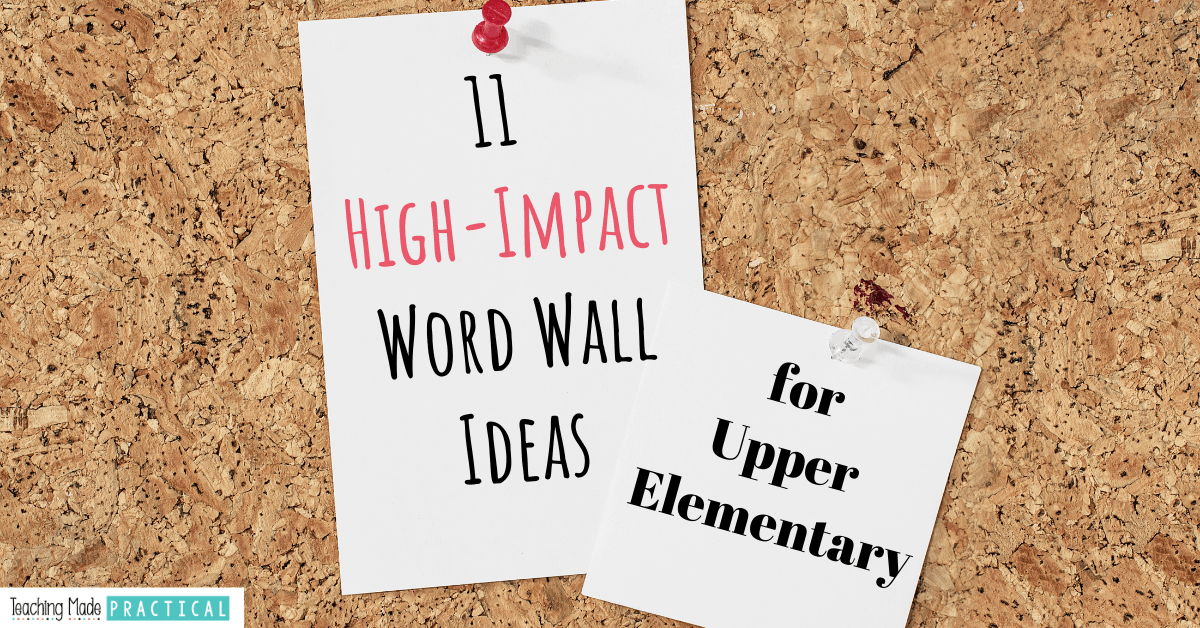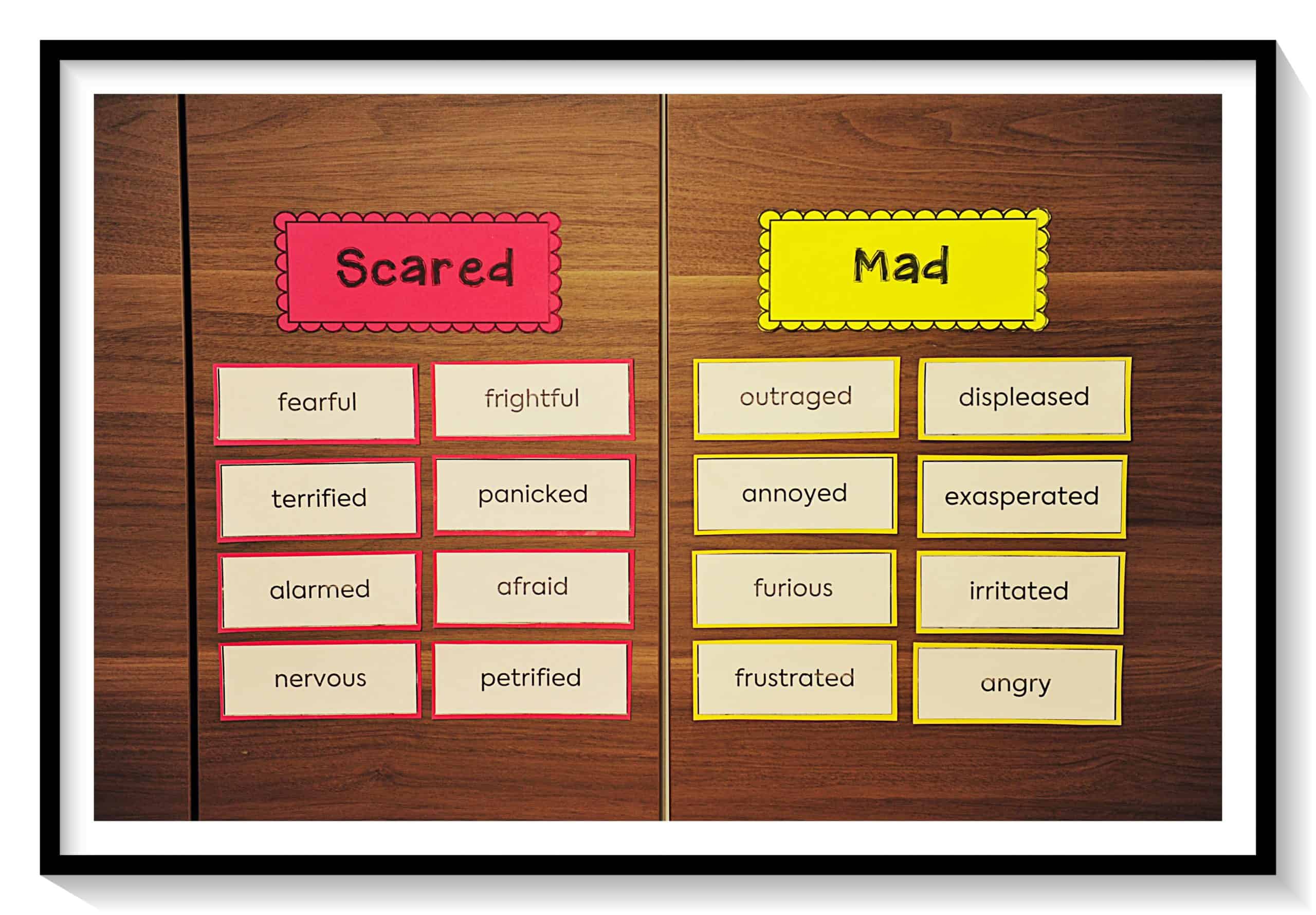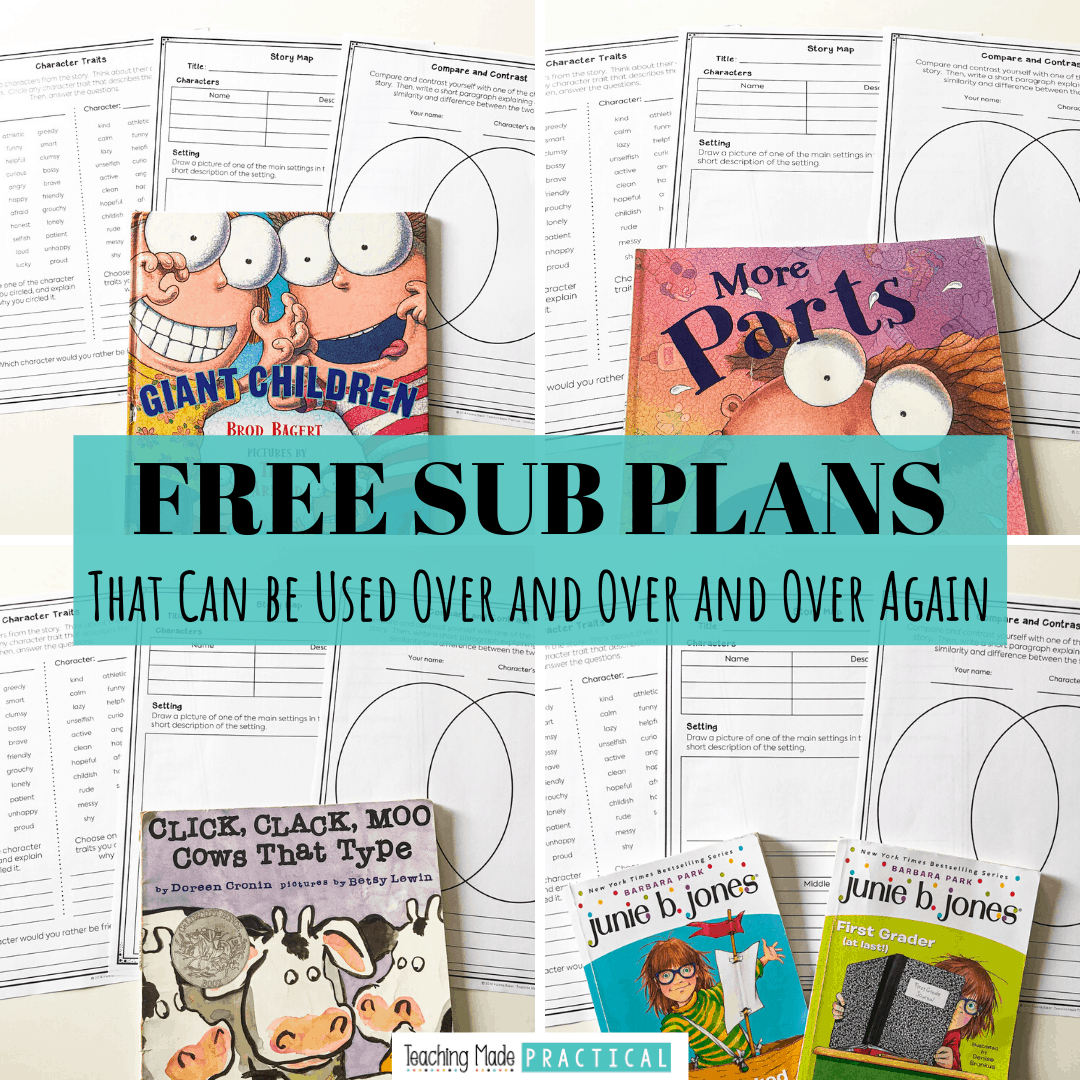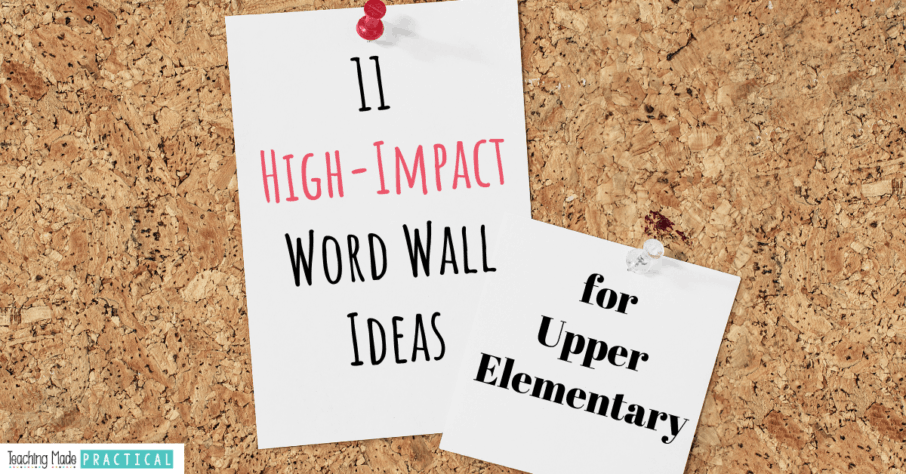
By the time students enter 3rd 4th, and 5th grade, they have most likely had four years of alphabetized word walls designed to help them learn their sight words. While this word wall idea is useful for primary students, upper elementary students don't benefit as much from this type of word wall.
Ideally, by upper elementary - and especially 4th and 5th grade - word walls should be used to help improve student vocabulary or help them practice other word decoding strategies.
Since wall space was limited in my classroom, I wanted to make sure that everything I hung on the walls was useful and would be referenced repeatedly throughout the school year.
I have tried out a variety of different word walls. Each had their pros and cons. The most useful word walls were ones that addressed a specific skill that my students were struggling with.
I never used completed word walls in my classroom, where all the words were already up on the first day of school. (Find ideas for preparing for the first day / first week of school here.) Instead, we made our word walls more interactive and added to the word wall regularly as words came up. Keeping the word wall top of mind with students will help ensure that they use it as a tool; otherwise it is just wasted wall space.
Below are some of my favorite word wall ideas for upper elementary, focused on building vocabulary and decoding skills in 3rd, 4th, and 5th grade students.
Word Walls to Help Students Become Better Decoders
Phonics Word Wall
In an ideal world, upper elementary students would already have all of their phonics skills down. However, teachers know better than anybody that we don’t live in an ideal world. Having a word wall that addresses specific phonics skills that students struggle with can be a huge benefit to them.
One year, my district required that all elementary teachers put up a word wall sorting words by every single phonics skill. This was a bit overkill, especially for upper elementary students that didn’t need to be reminded about every letter sound.
However, my 3rd graders consistently struggled with r-controlled vowels and diphthongs, so I had a small section of the wall devoted to these specific phonics skills. I had a section for "ar" words, "or" words, "ir" words, etc., with examples of each. The students found this very helpful as a reference.
If your students struggle with the different long vowel sound spelling patterns, then these posters might be helpful - and you can use them to help you create a long vowel sound word wall as well!
Syllable Types Word Wall
Teaching syllable division, multisyllabic words, or syllable types? Having a syllable type word wall will help 3rd, 4th, and 5th grade students with all of these things.
After introducing the first syllable type (usually closed syllables), start a word wall using some of the words you used in your lesson. Then, have students add to the word wall by going on a word scavenger hunt or as they come across words in their own reading. This multisyllabic word list can help you create a word wall for the 6 syllable types.
Be sure and include both 1 syllable words and multisyllabic words in your word wall. For multisyllabic words, consider underlining the syllable(s) that follows the syllable type pattern.
After introducing the syllable types, you could use these syllable type word mazes as a fun way to make sure students have a good understanding!
Root Word/Prefix/Suffix Word Wall
This type of word wall helps build both vocabulary and decoding skills. As you come across words with certain prefixes, suffixes, and root words that you want students to become familiar with, hang them up on the wall for continued reference.
Use this No Prep Prefix, Suffix, and Base Word Center Resource for some extra practice.
Irregularly Spelled Words Word Wall
This is the only word wall on the list that could be used like the typical alphabetic word wall. If your students are constantly misspelling certain words or asking you how to spell words, then you could create a word wall with irregularly spelled words for reference.
This takes up a lot of wall space for something that is not really important in today’s world of spell check and online dictionaries. If your students need a reference like this, a portable word wall might be more useful. Read more about portable word walls here.
Word Wall Ideas to Help Build Vocabulary
Shades of Meaning Word Wall
This word wall is a great extension to a lesson on word choice and shades of meaning lesson.
Choose some well known words - words like run, big, and said. Come up with a list of synonyms for reach of those words, and have students sort them on a continuum based on their shades of meaning.
Using the word big, for example, you could give students a list of the following synonyms for big: massive, colossal, large, giant, enormous, and oversized.
Then, have upper elementary students put the words in order from the words that mean the "most big" to the words that mean the "least big." There is no one right answer, but the discussion generates is invaluable!
Post all these words and their synonyms on a word wall to help students be more precise in their own writing.
Character Trait Word Wall
This is similar to the shades of meaning word wall, but focuses specifically on character traits and would be a great addition to a character trait unit.
I found that my students regularly used boring words like “nice” and “mean” to describe different characters. Having a character traits word wall really helped my students to expand their character trait vocabulary. Read more about how a character trait word wall might help you out in your classroom, and get a free word wall printable here.

Figurative Language Word Wall
This word wall example might be more of a "phrase" wall. When you introduce figurative language to your students, start a word wall that they can use as reference. Then, as you come across these different types of figurative language, add to the word wall.
These figurative language posters can help you start off your word wall. Then, post examples of similes, metaphors, personification, alliteration, onomatopoeia, and hyperbole as you come across it as a class.
Math Vocabulary Word Wall
As you cover different math vocabulary each unit, hang the word up with a simple definition or drawing to explain the concept. (Or, have a student create the drawing and definition!) Then, make sure you have 3rd, 4th, and 5th grade students use the correct academic vocabulary as they discuss certain concepts.
One year I had a group of students that really struggled with the meaning of words like sum, product, difference, quotient, etc. Having something that they could continually reference really helped them, and it also helped remind me that I should be using that vocabulary regularly as well.
Science/Social Studies Word Wall
As you cover different science and social studies units, hang up different vocabulary words you discuss.
I have found that these types of word walls are most useful if you group words by topic. For example, after a weather unit, group all of your weather related vocabulary words together under a heading labeled “Weather.”
Then, do the same thing for your next unit. Keeping these words up in your classroom all year makes it easy to review different units with your students whenever you have a little extra time.
This fun, free, no prep word study activity can be used anytime to help you get the most bang for your buck with your word wall.
Creating Different Word Walls From Weekly Vocabulary Words
Using your weekly vocabulary words to create word walls that practice different skills is easy, it can be used to practice a variety of skills, and it helps 3rd, 4th, and 5th grade students remember past vocabulary words.
Don't sort these words alphabetically, though. Use these words to review other skills.
And check out these no prep ways to review vocabulary while you are at it.
Syllable Word Wall
Sort your weekly vocabulary words by number of syllables. Have headings on your wall for 1 syllable words, 2 syllable words, 3 syllable words, etc.
If you are working on the different syllable types, you could sort the words by syllable type instead. This gets a little more complicated, however, as vocabulary words don't often fit into categories like this perfectly.
Parts of Speech Word Wall
Sort each of your weekly vocabulary words by parts of speech - noun, verb, adjective, etc. This is a great way to regularly review these grammar skills.
As the year progresses, you can adapt your parts of speech word wall based on the skills you are teaching. For example, instead of just having a "Noun" section, you could have a "Concrete Noun" and an "Abstract Noun" section.
If you go with a parts of speech word wall, then make sure you have a section for words that have more than one part of speech.
Synonym Word Wall
Coming up with synonyms for weekly vocabulary words is a part of many teachers' vocabulary routine. Why not make this into a word wall that students can refer back to regularly?
Every week, choose a few of your weekly vocabulary words to put on the classroom wall, and list 3-4 synonyms for each of the vocabulary words. This is most useful for students if the synonyms you put on the wall are words that will help expand their vocabulary, not familiar words.
Never Stress Over Sub Plans Again!

Make copies, find a fiction book, and you'll be ready for any emergency that comes your way!



Comments 2
Thank you very much this is very helpful.
Great